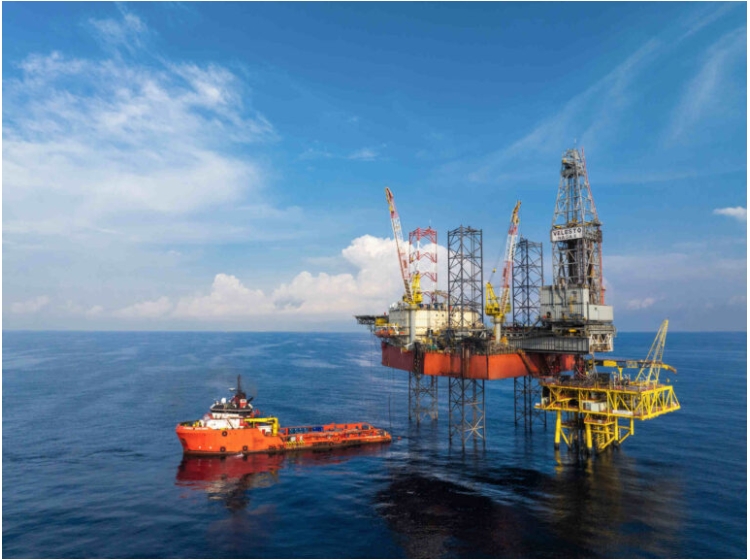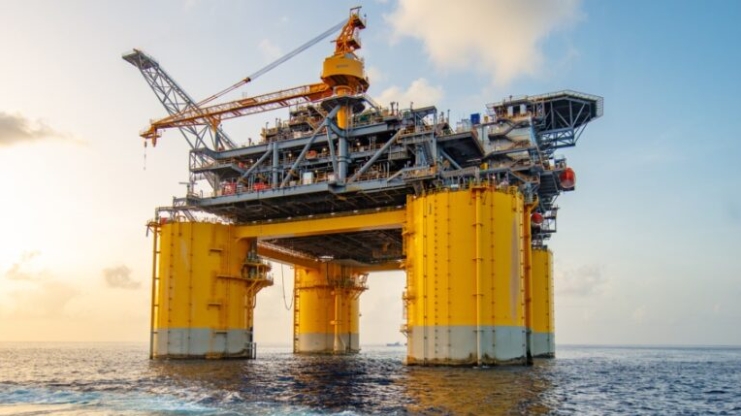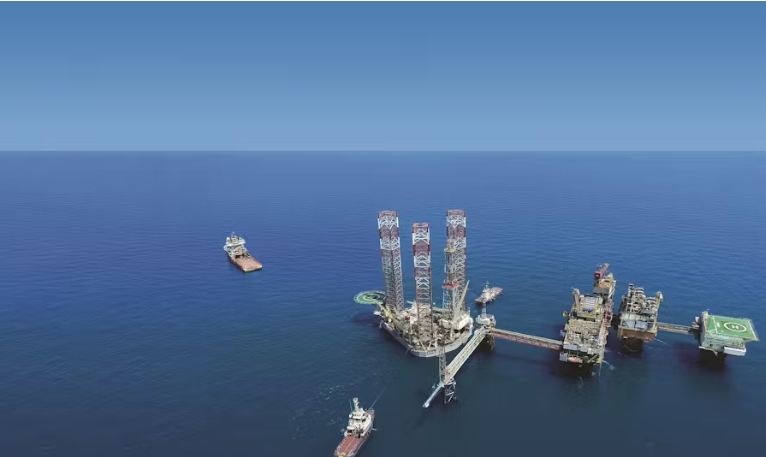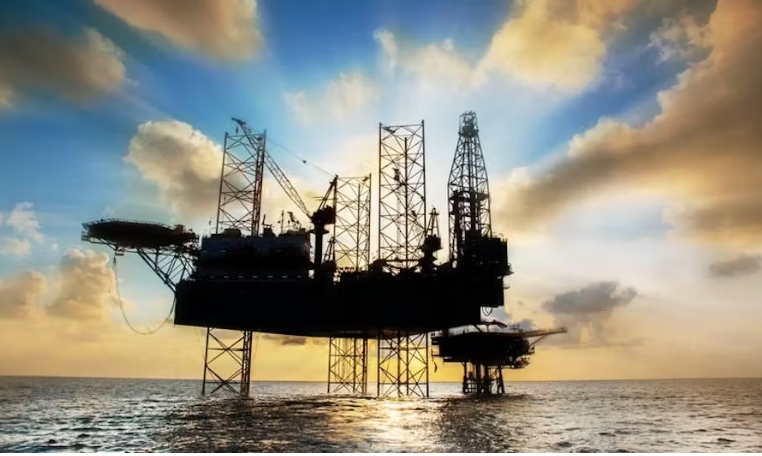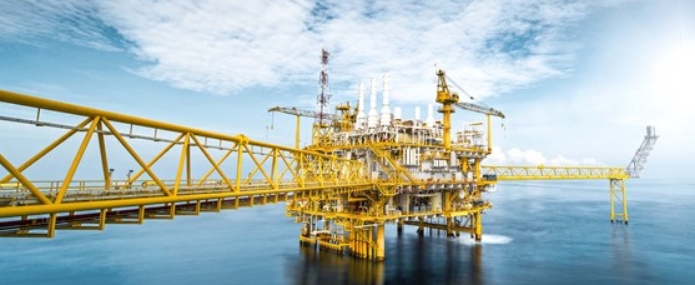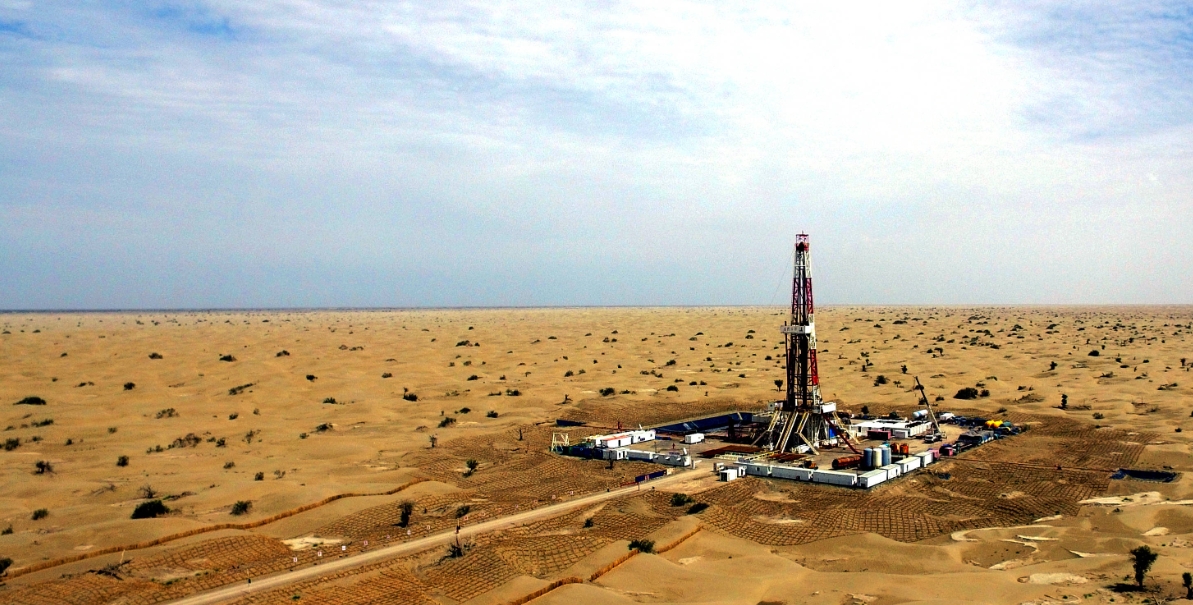China's Policy Paper on the European Union
(December 2018)
The world is undergoing major development, changes and adjustments. The trend toward multi-polarity, economic globalization, IT application and cultural diversity is deepening. Countries are increasingly interconnected and interdependent. Meanwhile, the world is witnessing growing instabilities and uncertainties, with unilateralism, protectionism and de-globalization on the rise.
Remarkable socio-economic progress has been achieved since China launched reform and opening-up 40 years ago. Yet China's international status as the world's biggest developing country remains unchanged. Under the guidance of Xi Jinping Thought on Socialism with Chinese Characteristics for a New Era, China will stay committed to pursuing peaceful development, comprehensively deepening reform and breaking new grounds in opening-up on all fronts, and building a new type of international relations and a community with a shared future for mankind in order to create new opportunities for and make fresh contributions to world peace and development.
European integration has advanced as regional countries and their people endeavor to maintain peace and gain strength through unity. The European Union, a grouping of countries with the highest level of integration and strong overall strength, plays a strategically important role in the international arena. Despite events including Brexit, the EU has remained committed to the direction of integration, pressed ahead with reforms in response to challenges and played a major role in regional and international affairs.
As major participants in and contributors to world multi-polarity and economic globalization, China and the EU share extensive common interests in upholding world peace and stability, promoting global prosperity and sustainable development and advancing human civilization, making the two sides indispensable partners to each other's reform and development. The EU has been China's largest trading partner for 14 years in a row and China the EU's second largest trading partner. Developing a sound relationship with the EU has long been a foreign policy priority for China.
The two policy papers on the EU issued by the Chinese government in 2003 and 2014 provided important guidance to the development of China-EU relations. The year 2018 marks the 15th anniversary of the China-EU Comprehensive Strategic Partnership and the 20th anniversary of the China-EU Summit. Based on past achievements and in keeping with the times, China's third policy paper on the EU aims at identifying the direction, principles and specific measures to deepen the China-EU Comprehensive Strategic Partnership in the new era and promote greater development of China-EU relations.
Part One
The Guiding Principles of China-EU Relations
Since the inception of the China-EU Comprehensive Strategic Partnership in 2003, the two sides have broadened and deepened their relations and fostered all-dimensional, multi-tiered and wide-ranging exchanges and cooperation. In his historic visit to the EU headquarters in 2014, President Xi Jinping reached important consensus with EU leaders on building China-EU partnership for peace, growth, reform and civilization, charting the course for deepening the win-win China-EU Comprehensive Strategic Partnership and setting out the overarching goals of China's policy on the EU in the long run. China proposes that the two sides view the China-EU relationship from a strategic and long-term perspective and adhere to the following principles in developing China-EU relations:
-Uphold mutual respect, equality and the one China principle to cement the most important political foundation of China-EU relations.
-Uphold openness, inclusiveness and win-win cooperation, strengthen exchanges in development philosophy and coordination of development plans.
-Uphold fairness and justice, stick together in trying times, and join hands to improve the global governance system.
-Uphold inter-civilization dialogue and harmony in diversity to facilitate mutual learning between the Chinese and European civilizations.
China welcomes a united, stable, open and prosperous Europe, supports the European integration process, and remains committed to developing ties with EU institutions, member states and other European countries in a comprehensive, balanced and mutually reinforcing manner. Based on common interests and needs, China and the Central and Eastern European countries have conducted win-win, open and transparent cross-regional cooperation. The support and constructive participation by the EU and other parties are welcomed. China hopes to see Brexit proceed in an orderly fashion and stands ready to advance China-EU and China-UK relations in parallel.
China will continue to step up high-level exchanges with the EU and EU member states, fully leverage the role of the China-EU Summit in providing strategic guidance to China-EU relations, further implement the China-EU 2020 Strategic Agenda for Cooperation the two sides jointly formulated in 2013 and discuss follow-up plans, and reinforce inter-governmental exchanges and dialogues at various levels. Exchanges on an equal footing and mutual learning should be enhanced between our legislatures, political parties, localities and social groups. China and the EU should expand practical cooperation in various fields and engage in third party cooperation. These exchanges and cooperation will help the two sides draw on each other's strengths, embrace sound interactions and achieve common development.
As an important global public good from China, the Belt and Road Initiative follows the principle of consultation and cooperation for shared benefits, upholds openness, inclusiveness and transparency, observes international rules and market principles, and pursues high quality and high standards tailored to local conditions. China welcomes the active participation of the EU and other European countries in a joint effort to build a road that promotes peace, prosperity, openness and innovation, connects civilizations, facilitates green development, and upholds high ethical standards.
Honoring the commitment to respecting China's sovereignty and territorial integrity, upholding the one China principle with concrete actions, and respecting China's core interests and major concerns bear on the long-term stability and growth of China-EU relations. The EU should explicitly oppose "Taiwan independence" in any form, support China's peaceful reunification, and handle Taiwan-related issues with prudence. Exchanges between the EU and Taiwan should be strictly limited to nonofficial and people-to-people activities, and there should be no official contact or exchanges in any form. The EU should refrain from signing with Taiwan any agreement with sovereign implications or official in nature. No institutions of an official nature should be established. The EU should not endorse Taiwan's membership in any international organization where statehood is required, not sell Taiwan any weapons or any equipment, materials or technologies that can be used for military purposes, and not carry out military exchanges or cooperation in any form.
The central government of China supports and encourages the governments of the Hong Kong Special Administrative Region and the Macao Special Administrative Region in developing mutually beneficial and friendly cooperation in such areas as economy, trade, culture and tourism with the EU and its member states in accordance with the principle of "one country, two systems" and provisions of the two Basic Laws. Given that Hong Kong and Macao are China's special administrative regions, their affairs are part of China's internal affairs and should not be interfered in by the EU side.
China appreciates the position of the EU and its member states that recognizes Tibet as an integral part of China's territory and does not support "Tibet independence". The EU should not allow leaders of the Dalai group to visit the EU or its member states in any capacity or under any name to carry out separatist activities, not arrange any form of contact with officials from the EU and its member states, and not support or facilitate any anti-China separatist activities for "Tibet independence". It is also imperative that the EU side not support or facilitate the East Turkestan Islamic Movement and any other activity of anti-China separatism, violent terrorism and religious extremism.
Despite differences in history, culture, social systems and development stages, China and the EU have no fundamental strategic conflicts but share much more common ground than differences. It is important that the two sides engage in dialogues instead of confrontation, enhance mutual understanding and trust through equal consultation, build as much consensus as possible, accommodate each other's legitimate concerns, and handle disputes and frictions in a constructive way.
China is ready to work with the EU to strengthen dialogue and coordination at bilateral, regional and global levels, promote and practise multilateralism, uphold the UN-centered international order and system, and tackle global challenges. China and the EU need to stand firmly against unilateralism and protectionism, push for a more open, inclusive and balanced economic globalization beneficial to all, and support the international community in formulating and improving fair, equitable and just international rules and standards to ensure that all parties engage in decision making as equals, enjoy their legitimate rights, and shoulder responsibilities and obligations commensurate with their levels of development.
Part Two
Cooperation in Political, Security and Defense Fields
Fully leverage the China-EU High Level Strategic Dialogue as a major platform to deepen strategic communication and coordination, build strategic consensus and deepen mutual trust.
Continue to hold the China-EU consultations on foreign policies and dialogues on regional affairs to facilitate political solutions to regional and international hotspot issues.
Enhance exchange, coordination and cooperation under the UN framework to support the UN in playing an active role and explore joint initiatives and actions on issues of common interest and with common ground between China and the EU and its member states. Jointly support the reform of the UN to strengthen its role and improve its efficiency. Increase exchange and practical cooperation on UN peacekeeping.
Intensify counter-terrorism communication and collaboration on the basis of mutual respect and equality, and firmly reject double standards for fresh progress in international counter-terrorism cooperation.
Enhance cooperation between police forces. China stands ready to expand exchanges and cooperation with Europol and launch joint patrols with EU member states as appropriate. Strengthen communication and cooperation on public legal services, and extradition and criminal judicial assistance for more practical and effective joint combat against transnational crimes.
Increase communication and cooperation on non-proliferation and export control. Jointly advance international nuclear security cooperation. Prevent weaponization of and arms race in outer space and safeguard its peace and security. Uphold the authority and universality of the multilateral disarmament regime. Jointly preserve the authority of the Non-Proliferation Treaty as the cornerstone of the international nuclear non-proliferation and disarmament regime, and support global efforts to ban nuclear tests. Support the Conference on Disarmament in adopting a comprehensive and balanced work program at an early date and carrying out substantive work.
Make good use of the China-EU Cyber Taskforce, jointly advocate a community with a shared future in cyberspace, promote norms for responsible State behavior in cyberspace under the UN framework, and advance the reform of the global internet governance system for a peaceful, secure, open, cooperative and orderly cyberspace.
Maintain high-level exchanges between defense authorities, enhance communication and cooperation through the dialogue mechanism on security policies. Actively expand personnel training and exchange programs, joint exercises, and cooperation in such non-traditional security fields as humanitarian rescue and assistance, peacekeeping and escort missions.
The EU and its member states should lift its arms embargo on China at an early date.
Deepen dialogue and cooperation under the ASEM framework, and advance ASEM reform on the basis of mutual respect, equality, mutual benefit and consensus-building with a focus on practical outcomes for ASEM to play its unique role in the global governance system.
Part Three
Cooperation in Trade, Investment, Connectivity, and Fiscal and Financial Fields
Give full play to the guiding role of the China-EU High Level Economic Dialogue, deepen dialogues on macroeconomic, economic and trade policies, enhance mutual understanding and proper reading of and seek greater synergy between each other's policies and regulations, unlock cooperation potential, handle disagreements and frictions in a constructive manner, avoid politicizing economic and trade issues, and ensure the sustained, steady and win-win progress of China-EU economic and trade relations.
Make joint efforts with a positive and pragmatic attitude to reach a win-win bilateral investment treaty, and launch a joint feasibility study on China-EU Free Trade Area at an early date to build a sound institutional framework for upgrading the economic and trade cooperation.
Promote coordinated development of trade in goods and services. China will expand the import of high quality goods from the EU through existing channels and new platforms such as the China International Import Expo. The EU should ease its high-tech export control on China, strictly fulfill its WTO obligations, ensure that its trade remedy legislation and practices are in line with WTO rules, apply trade remedy measures reasonably, and prevent discrimination, de jure or de facto, against some WTO members.
Maintain two-way openness and facilitate mutual investment. China will significantly ease market access, fully implement the management system of pre-establishment national treatment and a negative list in a bid to foster a stable, fair, transparent, law-based and predictable business environment that protects the legitimate rights and interests of foreign investment and treats Chinese and foreign firms registered in China as equals. China hopes that the EU will keep its investment market open, reduce and eliminate investment hurdles and discriminatory barriers, and provide Chinese companies investing in Europe a fair, transparent and predictable policy environment and protect their legitimate rights and interests.
Enhance exchanges and cooperation in the field of competition, and jointly uphold the market order of fair competition. China follows with interest the EU laws and regulations on trade and investment, and hopes that EU makes its legislation consistent with WTO rules and takes concrete actions to safeguard an open and fair market environment to reduce and remove the doubts and concerns of Chinese companies. The Chinese government supports Chinese companies in Europe in setting up the China Chamber of Commerce to the EU.
Promote the development of the China-EU Connectivity Platform, seek greater synergy between the Belt and Road Initiative and the EU development plans including the EU Strategy on Connecting Europe and Asia, the Investment Plan for Europe, the Trans-European Transport Networks, actively leverage the role of the Asian Infrastructure Investment Bank, the European Investment Bank, the European Bank for Reconstruction and Development, and the China-EU Joint Investment Fund, better implement all cooperation projects, and encourage active participation of EU member states. Support the sound development of the China-Europe Railway Express, simplify the international railway transport procedures, lower transit costs, and provide better security protection for goods.
Make good use of transportation cooperation mechanisms at all levels, and enhance policy dialogue, aligning of and exchanges on technical standards. Support port and shipping companies in actively participating in each other's projects, promote all-round and mutually beneficial shipping and maritime cooperation. Follow through on the consensus on civil aviation and enhance exchanges and cooperation.
Advance customs cooperation to facilitate trade. The China-EU Joint Customs Cooperation Committee will provide better guidance and coordination for customs cooperation. Fully implement the Agreement on Cooperation and Mutual Administrative Assistance in Customs Matters and other documents, promote cooperation on IPR border law enforcement, Smart and Secure Trade Lanes, mutual recognition of Authorized Economic Operator, trade statistics, combating fraud, monitoring of solid waste, cross-border sanitary and phytosanitary quarantine, security of imported and exported goods, and supervision of food safety, and actively explore new areas of cooperation such as regulation of cross-border e-commerce.
Further enhance communication and cooperation on intellectual property rights, support IP agencies on both sides in establishing and improving regular communication mechanisms for more dialogue on IPR creation, utilization, protection, management and services to jointly foster a more enabling IPR environment. Support early conclusion of the Agreement on Geographical Indications. China protects the lawful IPRs of foreign enterprises in China and hopes that the EU and its member states will strengthen the protection of Chinese IPRs.
Increase exchanges and cooperation in such areas as standards, metrology, certification, quality management and supervision, and safety check of special equipment, fully harness the role of the China-Europe Standards Information Platform in discussing the standardization issues of common interest to provide Chinese and European enterprises with timely, effective and authoritative information on standards.
Leverage mechanisms such as the China-EU Economic and Financial Dialogue and the Working Group between the People's Bank of China and the European Central Bank to maintain close communication on major international economic and financial issues. Support greater two-way openness of the financial sector and advance cooperation on cross-border financial infrastructure connectivity. Promote cooperation between financial institutions, including cooperation with multilateral financial institutions, and between businesses, maintain steady development of the financial sector, deepen communication and dialogue between the financial regulatory bodies, enhance mutual regulatory recognition and trust, and actively address appeals from banks on both sides for cross-border operations.
Financial institutions from EU member states are welcome to enter the Chinese market. China hopes that the EU will support Chinese financial institutions in setting up institutions in Europe and expand access channels for Chinese policy financial institutions to do business in the EU. Support CEINEX in becoming a platform for offshore trade in RMB-denominated financial products, risk management and asset allocation. China encourages EU member states to issue RMB bonds in China and offshore RMB bonds in major global financial centers. China hopes that the EU will exercise caution when introducing the Intermediate Parent Undertaking requirement to safeguard the sound development of the financial cooperation between the two sides.
Carry out cooperation under the G20 framework to jointly support the G20's status and role as the premier forum for international economic cooperation. Uphold the spirit of partnership, support multilateralism, strengthen macroeconomic policy coordination, advance structural reforms, promote reform in the international financial system, push forward trade and investment liberalization and facilitation, and build an open world economy.
Strengthen communication on the WTO reform through the joint working group on WTO reform to safeguard the WTO's core values and fundamental principles, uphold its authority and effectiveness, safeguard the development space of its developing members, and promote a more open, inclusive, transparent multilateral trading regime.
Part Four
Cooperation in Scientific Research, Innovation, Emerging Industries, and Sustainable Development
Make good use of the China-EU Science and Technology Cooperation Joint Steering Committee, the Innovation Cooperation Dialogue and the Co-funding Mechanism for Research and Innovation under the framework of the China-EU Science and Technology Cooperation Agreement, work out a roadmap for cooperation on scientific research and innovation, and conduct comprehensive cooperation in frontier disciplines, basic research and major social challenges, implement flagship projects in agriculture and biotechnology, the environment, sustainable urbanization, surface transportation, safe and green aviation, and health biotechnology, and expand cooperation on information and communications, smart manufacturing, health, and new materials.
Fully harness the role of the China-EU/ESA Dialogue on Space Technology Cooperation, and advance cooperation in earth observation, space technology, space science, space application, deep space observation and manned space flight, discuss the establishment of a dialogue mechanism on space policy cooperation, and seek greater synergy in broad areas.
Bring into full play the China-EU Industrial Dialogue and Consultation Mechanism as a platform to reinforce policy communication on automobiles, vessels, raw materials, SMEs and industrial energy efficiency, further synergize industrial development strategies, support industries, universities and research institutes on both sides in expanding cooperation on smart manufacturing, green manufacturing, new energy vehicles, intelligent connected vehicles, new materials, and high-tech vessels, and advance the development of an exchange platform for SMEs to unleash their cooperation potential.
China and the EU need to support each other and carry out exchanges and cooperation in developing "Digital China" and the EU Digital Single Market. Make good use of such mechanisms as the China-EU Dialogue on Information Technology, Telecommunications and Informatization, and the China-EU Digital Economy and Cybersecurity Expert Working Group, deepen cooperation on 5G, promote technological exchanges and standardization cooperation on the digital economy, Internet of Things, Internet of Vehicles, Industrial Internet, artificial intelligence and smart cities, develop pilot demonstration projects, and facilitate practical cooperation among industries. Jointly tackle risks and challenges brought about by new technologies.
Noting the higher requirements made by the EU General Data Protection Regulation (GDPR) on privacy protection, data security, and trade and investment for corporations with digital businesses in Europe, the Chinese side hopes that the implementation of the GDPR will not affect normal business interactions between the two sides. China will continue to carry out exchanges, mutual learning and cooperation with the EU on data protection to better protect personal information and the legitimate rights and interests of citizens.
Make full use of the China-EU Dialogue on Agriculture and Rural Development, deepen cooperation on agro-technology research and development, training of young agro-professionals, animal health and rural development, promote steady growth of trade in agro-products, and strengthen mutual support and collaboration in international organizations such as the Food and Agriculture Organization of the Untied Nations.
Give better play to the China-EU Water Policy Dialogue and the Water Platform, enhance communication and deepen cooperation on water supply and food security in rural areas, water and urbanization, river basin management and planning, and water and energy security, strengthen exchanges and sharing of experience and technologies in water recycling and drinking water protection.
Conduct the China-EU High Level Forestry Policy Dialogue, continue to enhance exchanges and cooperation among all stakeholders in timber production, processing and consumption, jointly explore paths and methods of mutual recognition of timber legality between China and EU member states, and promote cooperation on the implementation and law enforcement of the Convention on International Trade in Endangered Species of Wild Fauna and Flora.
Develop the China-EU Blue Partnership, enhance dialogue and cooperation in ocean governance, blue economy, protection and sustainable use of maritime resources, maritime technological innovation, polar affairs, and fishery-related areas, carry out practical cooperation programs, and strengthen communication and coordination on negotiations of ocean-related international agreements.
Fully leverage the China-EU Energy Dialogue, actively implement the China-EU Roadmap on Energy Cooperation, carry out dialogue and exchanges on energy policies, deepen cooperation on energy system, energy efficiency and clean energy, including developing an electric power market, improving power infrastructure, establishing a safe and efficient natural gas market, and increasing renewable energy consumption, and promote energy security of both sides.
Further promote all-dimensional and high-level cooperation on peaceful use of nuclear energy, continue to strengthen substantive cooperation on nuclear fission, nuclear fusion, nuclear security, nuclear safeguards, nuclear non-proliferation, nuclear technology research, and the non-power uses of nuclear technology in medical care and health, environmental protection, food safety, industrial processing and public security.
Give full play to the China-EU Ministerial Dialogue on Environmental Policy, discuss the establishment of a green development partnership, strengthen policy exchanges and cooperation on pollution prevention and control, environmental governance, biodiversity conservation and green growth, and encourage enterprises from both sides to engage in joint research and development and business cooperation on environmental protection. Maintain communication and coordination on major global environmental issues, and implement international environmental conventions.
Increase China-EU policy dialogue and practical cooperation in climate change-related fields, strengthen cooperation on carbon emission trading, enhance exchanges and cooperation on climate change and low-carbon development at the city level. Adhere to the principles and provisions in the United Nations Framework Convention on Climate Change, jointly advance follow-up negotiations and effective implementation of the Paris Agreement, and actively develop and improve the global climate governance system to promote green, low-carbon, and sustainable development.
The MOU on China-EU Circular Economy Cooperation will serve as guidance for efforts to enhance cooperation on the circular economy and increase exchanges on the management system, policy tools, investment and financing, and policy research of the circular economy.
Implement the Joint Declaration on the China-EU Partnership on Urbanization, and work to deepen such a partnership. Enhance dialogue and cooperation on regional policies, deepen sub-national cooperation, support exchanges and collaboration on policies related to megalopolises, metropolitan areas and small and medium-sized cities. Deepen practical cooperation among Chinese and European provinces and municipalities, between cities and industrial parks, and between cities and enterprises. Various sectors from the EU are welcome to actively participate in the integration of the Beijing-Tianjin-Hebei region and the development of the Yangtze River Economic Belt, the Guangdong-Hong Kong-Macao Greater Bay Area, the Xiong'an New Area and the Hainan pilot free trade zone and free trade port.
Jointly implement the 2030 Agenda for Sustainable Development, respect each other's national conditions and development paths, promote economic, social and environmental development in a balanced manner, give priority to livelihood issues including poverty alleviation, education and health, follow the principle of "common but differentiated responsibilities", improve global partnership for development, and achieve common development and prosperity.
Part Five
Social and People-to-People Cooperation
Fully leverage the coordinating role of the High-level People-to-People Dialogue and continue to explore new fields, models and approaches of exchanges and cooperation. Facilitate personnel flows, and actively work toward the goals in the second phase of the roadmap of the China-EU Mobility and Migration Dialogue.
Carry out China-EU Employment and Social Security Policy Dialogue. Strengthen and improve the high-level dialogue platform on human resources and social security under the framework of the MOU on Employment and Social Affairs Dialogue. Continue to implement the technical cooperation projects on social security, promote social security and unity, work for higher quality and fuller employment, narrow income gaps, pursue greater social integration, ensure occupational safety and health, promote decent work, address challenges including youth employment, aging, migration and mobility, and advance exchanges and cooperation on social welfare, social assistance, social affairs, social work and community governance.
Strengthen China-EU dialogues and exchanges on health policy, carry out practical cooperation in health promotion, antimicrobial resistance and IT application in medical care, and enhance food safety. Continue to conduct the China-EU Dialogue on Work Safety, and push forward cooperation in emergency management, earthquake technology, disaster preparedness and relief, and work safety.
Continue to increase exchanges between students and scholars, strengthen communication and exchanges on education policies, and explore mutual recognition of quality and standards of higher education and vocational education. Make use of the platforms such as the China-EU Education Policy Dialogue, the China-EU Higher Education Platform for Cooperation and Exchange and the China-EU University Presidents Forum, facilitate exchanges and cooperation between education think tanks. Encourage universities from both sides to carry out high-quality cooperation in running schools and joint education programs.
Jointly protect and promote cultural diversity. Enhance the China-EU dialogue on cultural policies, upgrade cooperation between cultural industries, work toward long-term and stable cooperative relations between major cultural institutions, and support cultural exchanges and cooperation with distinct features between cities. Facilitate efforts by China and EU member states to set up cultural centers in each other's countries. Further explore each other's tourism markets and boost cooperation between tourism industries based on the success of the China-EU Tourism Year of 2018.
Strengthen sports exchanges and cooperation between China and EU member states, encourage mutual participation in sports events and international conferences. Expand cooperation in winter sports by seizing opportunities presented by the 2022 Beijing Winter Olympics.
Encourage media cooperation in various forms, welcome the participation of media organizations from EU member states in the Belt and Road News Network, expand press and publishing cooperation, facilitate exchanges of broadcasting and television organizations, and support cooperation in the production of film and TV programs, book translation and joint interviews. It is believed that media professionals should observe their professional ethics, and oppose and combat fake news and illegal online content. China will continue to provide facilitation for EU correspondents in China in accordance with laws and regulations and hopes that the EU will play a positive role in facilitating objective, impartial and accurate coverage of China by media in EU member states.
Make good use of the China-EU Legal Affairs Dialogue, carry out legal policy exchange, mutual learning and cooperation to better understand each other's legal systems and promote China-EU cooperation.
Continue to conduct constructive exchanges on human rights on the basis of equality and mutual respect in the hope that these exchanges play a positive role in promoting China-EU relations and common progress on human rights. The European side should view China's human rights conditions in an objective and fair manner and refrain from interfering in China's internal affairs and judicial sovereignty in the name of human rights.
Encourage think tanks from both sides to increase intellectual exchanges to play their positive and constructive role in facilitating mutual understanding and proper perception between people of the two sides, and make recommendations for growing China-EU relations. China welcomes lawful activities by NGOs from other countries, including EU member states, supports their positive role in promoting friendly exchanges between China and their home countries, and will continue to provide necessary facilitation and services.
Build a wide-ranging and multi-tiered network for China-EU youth exchanges and continue to hold the China-EU Youth Policy Dialogue and Expert Seminar as well as themed exchanges between youth organizations.
China hopes that the EU side will earnestly protect the safety and legitimate rights and interests of Chinese nationals in its member states. Chinese nationals are encouraged to integrate into local communities, actively play the role of a bridge, and contribute to mutual understanding and cooperation between the two sides.
Support continued efforts by the China Economic and Social Council and the European Economic and Social Committee in hosting the China-EU Roundtable, and support NGOs from both sides in carrying out cooperation in accordance with laws and regulations and playing their positive role in promoting China-EU people-to-people dialogue and exchanges.

